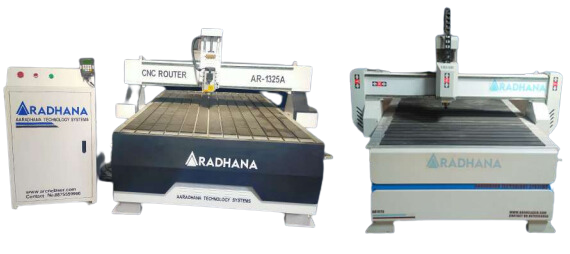CNC machines are a critical component in the production of many consumer goods, from electronics to furniture and household appliances. These machines have revolutionized the manufacturing process, making it faster, more efficient, and more precise. In this article, we will explore the role of CNC machines in the production of these consumer goods.
Electronics:
CNC machines play a significant role in the production of electronics, such as computers, smartphones, and tablets. These machines are used to create the intricate components that make up these devices. For example, CNC machines are used to create printed circuit boards (PCBs) that are used in nearly all electronic devices. These machines also play a critical role in the production of microprocessors and other electronic components.
PCB manufacturing:
Printed Circuit Boards (PCBs) are a crucial component of electronic devices, and CNC machines are commonly used in their manufacturing. CNC machines can drill precise holes in the PCBs, cut and shape the boards to the required size, and etch the copper circuits that connect the various components.
Enclosure manufacturing:
The enclosures or cases of electronic devices are often made from plastic or metal, and CNC machines are used to create the precise shapes and sizes required for each product. CNC machines can also be used to add logos and other branding elements to the cases.
Precision machining:
CNC machines are capable of producing high precision parts, which are essential in the production of electronics. For example, CNC machines can be used to produce the small, intricate parts found in devices such as smartphones and tablets.
Prototyping:
Before a new electronic product is mass-produced, a prototype is usually created to test the design and functionality. CNC machines are commonly used in the prototyping process to produce the various parts and components needed for the product.
Furniture:
CNC machines have revolutionized the furniture manufacturing process, allowing for the creation of intricate and complex designs that would have been impossible to produce manually. These machines are used to cut, shape, and drill wood and other materials to create precise and accurate furniture components. CNC machines also allow for the creation of custom furniture pieces, allowing for greater design flexibility and personalization.
Cutting and shaping:
CNC machines are capable of cutting and shaping a wide range of materials, including wood, plastic, and metal. In furniture production, CNC machines can be used to create intricate designs and shapes that are difficult to achieve using traditional woodworking tools.
Joinery:
CNC machines can also be used to create precision joints, such as mortise and tenon joints, that are essential in the production of high-quality furniture.
Routing:
CNC machines equipped with routing heads can create intricate designs and decorative elements on furniture. This can be used to create unique and personalized pieces, as well as to replicate designs across multiple pieces.
Prototyping:
Before a new piece of furniture is mass-produced, a prototype is usually created to test the design and functionality. CNC machines are commonly used in the prototyping process to produce the various parts and components needed for the furniture.
Customization:
CNC machines can be programmed to create custom designs and personalized pieces of furniture. This allows for the creation of unique pieces that are tailored to the specific needs and preferences of individual customers.
Household appliances:
CNC machines are also used in the production of household appliances, such as refrigerators, washing machines, and dishwashers. These machines are used to create the metal components that make up these appliances, including the outer casings, shelves, and drawers. CNC machines also allow for the creation of custom parts, which can be essential in the repair and maintenance of these appliances.
Sheet metal cutting:
CNC machines can be used to cut and shape sheet metal, which is used in the construction of appliances such as ovens, refrigerators, and washing machines.
Bending and forming:
CNC machines equipped with bending and forming tools can be used to shape sheet metal into the required forms and shapes for household appliances. This includes creating the curved and contoured surfaces found in modern appliance designs.
Precision drilling:
CNC machines can drill precise holes in metal parts, which is essential in the construction of appliances. For example, CNC machines can drill the holes needed for mounting brackets, electrical wiring, and other components.
Laser cutting:
Some CNC machines are equipped with lasers, which can be used to cut and etch parts for appliances such as control panels, dials, and displays.
Prototyping:
Before a new household appliance is mass-produced, a prototype is usually created to test the design and functionality. CNC machines are commonly used in the prototyping process to produce the various parts and components needed for the appliance.
Conclusion
CNC machines have had a significant impact on the production of consumer goods, making it faster, more efficient, and more precise. These machines have allowed for greater design flexibility, which has resulted in a broader range of products and customization options. As technology continues to evolve, it is likely that CNC machines will play an even greater role in the production of consumer goods, resulting in higher quality products and greater efficiency in the manufacturing process.
Aaradhana Technology Systems is a leading provider of CNC machines and related technology, helping businesses of all sizes to achieve greater efficiency, productivity, and precision in their manufacturing processes. With a broad range of CNC machines, Aaradhana Technology Systems is dedicated to helping businesses stay ahead of the competition and meet the evolving needs of the consumer goods market.

